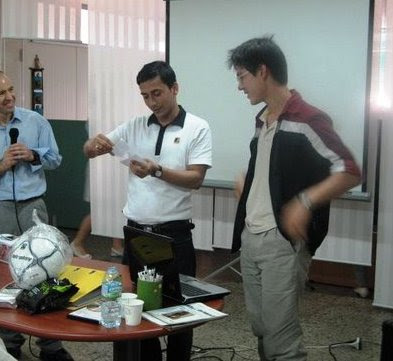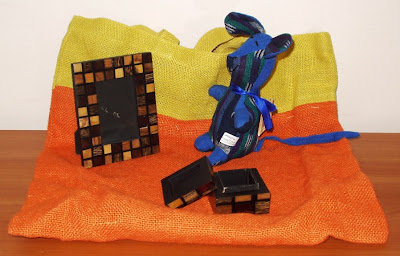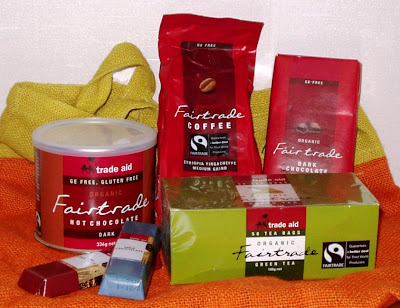Thursday, June 19, 2008
Asian Youth Cultural Festival
The inaugural UNESCO Asian Youth Cultural Festival
Saturday, June 28th, 2008
9:00 a.m. - 10:00 pm
Theme: Fair Trade
- at Chosun University Middle School from 9am,
- at Geumnam-no Peace Park from 1pm
- and at GIC from 2.30pm
Gwangju International Center (GIC) is hosting
the first UNESCO Asian Youth Cultural Festival on June 28th.
This event is being organized as a part of the 2nd UNESCO Asian Youth Forum (at Chosun University, June 26th - 30th)
to help cultivate and support a substantial Asian youth community network.
We are looking for harmony and unity among all youth in Gwangju
overcoming lingual, cultural or other barriers through activities
including campaigns, talks, performances and a cricket competition
for people from diverse and differing cultural backgrounds.
This will be a unique opportunity for all youth to share their knowledge and thoughts on Asia.
Please come and enjoy it all!
The schedule:
▷ 9:00 - 12:00 "Fair Trade" parade & performance
from Chosun University to Geumnam-no Peace Park
▷ 9:00 - 13:00 Cricket Competition
At Chosun middle school
Sports exchange through learning and competing
- a mixed teams social cricket game at Chosun middle school
▷ 13:00 - 17:00 Asian Food Festival
Students' communities from Bangladesh, China, India, Korea, Mongolia, Nepal, and Vietnam selling their own traditional cuisine
▷ 14:30 - 19:00 Talking About Asia
(at the Gwangju International Center)
'Case Reports: Regional Youth Community Work in Asia'
- by participants from the second UNESCO Asian Forum
▷ 14:00 - 19:00 Asian Market
- Art experiences with local artists (Chalk/ Book/ Folk Art)
- Making group-collaboration art
- Fair trade stall, with information and products provided by Fairtrade Korea Cooperation
- see: www.fairtradekorea.com
[* English speaking volunteers needed for this stall.
If you know a bit about fair trade products and/or issues,
and can spare some time within these hours,
then please see the details below to contact Jiyeon at GIC.]
▷ 16:30 - 21:30 Performance
Peace through performance:
A cappella, Fork, Fusion music, Samulnori, Mongolian band
(062) 226 - 1050 / 2734
Gwangjuic@gmail.com
Saturday, June 28th, 2008
9:00 a.m. - 10:00 pm
Theme: Fair Trade
- at Chosun University Middle School from 9am,
- at Geumnam-no Peace Park from 1pm
- and at GIC from 2.30pm
Gwangju International Center (GIC) is hosting
the first UNESCO Asian Youth Cultural Festival on June 28th.
This event is being organized as a part of the 2nd UNESCO Asian Youth Forum (at Chosun University, June 26th - 30th)
to help cultivate and support a substantial Asian youth community network.
We are looking for harmony and unity among all youth in Gwangju
overcoming lingual, cultural or other barriers through activities
including campaigns, talks, performances and a cricket competition
for people from diverse and differing cultural backgrounds.
This will be a unique opportunity for all youth to share their knowledge and thoughts on Asia.
Please come and enjoy it all!
The schedule:
▷ 9:00 - 12:00 "Fair Trade" parade & performance
from Chosun University to Geumnam-no Peace Park
▷ 9:00 - 13:00 Cricket Competition
At Chosun middle school
Sports exchange through learning and competing
- a mixed teams social cricket game at Chosun middle school
▷ 13:00 - 17:00 Asian Food Festival
Students' communities from Bangladesh, China, India, Korea, Mongolia, Nepal, and Vietnam selling their own traditional cuisine
▷ 14:30 - 19:00 Talking About Asia
(at the Gwangju International Center)
'Case Reports: Regional Youth Community Work in Asia'
- by participants from the second UNESCO Asian Forum
▷ 14:00 - 19:00 Asian Market
- Art experiences with local artists (Chalk/ Book/ Folk Art)
- Making group-collaboration art
- Fair trade stall, with information and products provided by Fairtrade Korea Cooperation
- see: www.fairtradekorea.com
[* English speaking volunteers needed for this stall.
If you know a bit about fair trade products and/or issues,
and can spare some time within these hours,
then please see the details below to contact Jiyeon at GIC.]
▷ 16:30 - 21:30 Performance
Peace through performance:
A cappella, Fork, Fusion music, Samulnori, Mongolian band
(062) 226 - 1050 / 2734
Gwangjuic@gmail.com
Sunday, May 18, 2008
Fairtrade sales in New Zealand continue to rocket
Sales of Fairtrade coffee, chocolate and tea have continued to soar over the last year – with total sales exceeding $7.5 million in 2007. Sales of Fairtrade coffee alone have grown by a whopping 3,404% since 2004. ...
... If you were offered a $1 in exchange for a 50 cent coin – would you make the trade?
Check out this surprising Fairtrade clip on Youtube.
... If you were offered a $1 in exchange for a 50 cent coin – would you make the trade?
Check out this surprising Fairtrade clip on Youtube.
Tuesday, May 13, 2008
World Fair Trade Day was delicious!
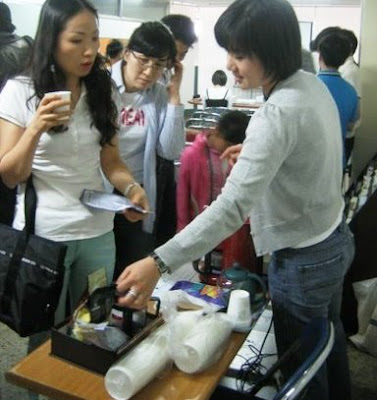
Early birds to the events day at GIC on World Fair Trade Day 2008 on Saturday 10th May were treated to free samples of fair trade chocolate. Cups of imported and local fair trade coffee were available for the price of only w500.
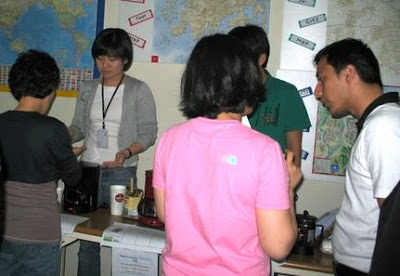
By 2.30 p.m. GIC was full with more than 70 people seated or standing. A speaker explained what fair trade is and how it works in different countries, and where to buy fair trade products in Korea.
After the talk more coffee was sampled, and the winning tickets to the fair trade raffle were drawn. Two prize winners were found, with the second prize (worth nearly w50,000, including a fair trade soccer ball made in Pakistan, Beautiful Coffee from Nepal, and ‘Hummingbird’ fair trade organic coffee) going to Paul Park (Park Seong Jun).
The first prize worth more than w100,000 went to one Mr Shin. The first prize pack contained a jute shopping bag full of fair trade tea, coffee, chocolate, a puzzle, a picture frame, a ring box, a soft toy, and a music CD, all of which came from the reputable New Zealand fair trade store Trade Aid.
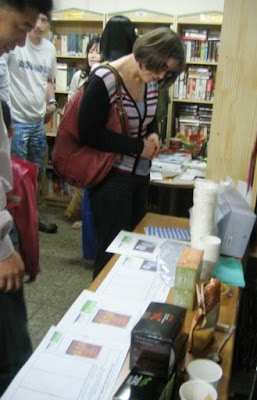
Fair trade tea and coffee is now available in GIC for sampling or enjoying.
Drinks cost a suggested donation price of about 500 won
to maintain the supply and promote fair trade around Gwangju.
Sunday, May 11, 2008
Fair trade coffee available now in Gwangju
In celebration of World Fair Trade Day 2008,
the Gwangju Fair Trade Movement is glad to announce
the discovery of two local brands of fair trade coffee in Gwangju
(and other cities around Korea),
another brand of coffee available online in Korea,
and then of course, there is always Starbucks' 'Estima'.
1.) The Beautiful Store's Beautiful Coffee has three varieties available:
'Nepal Coffee - A Gift from the Himalayas'
'Peru Coffee - A Gift from the Andes'
'Mountain Blend - Fair trade organic coffee'


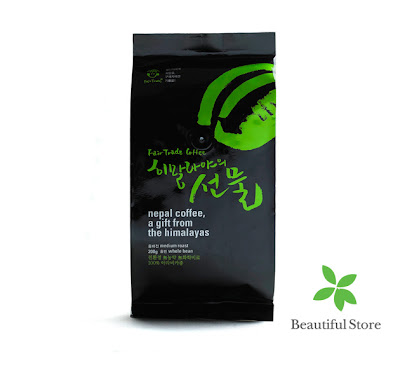
* Available in whole beans, in pre-ground form, or in convenient single-serve coffee bags
* Available from:
- all Beautiful Store shops (eg. to the immediate left of Gwangju Train Station)
- all HomePlus supermarkets, in the 'whole bean' section of the coffee aisle
2.) YMCA's own 'Peace Coffee' imported from East Timor
* Available in whole bean form,
or conveniently packaged into single serve coffee bags
in three boxes of 15 each
(ie. 45 cup servings in one attractive boxed set).

* Available from the YMCA, upstairs on the third floor,
up the stairs to the left of the Tourist Information Office,
just opposite GIC, on Kumnamno.
3.) The long-established French fair trade coffee company Cafes Lobodis,
which is available through the new Korean online store 'Fair Trade Store,'
or at their shop in Apgujung in Seoul.

Lobodis is the Starbucks of fair trade coffees
in terms of its high profile which it enjoys in Europe
after celebrating its fifteenth year in business
but it is recognised for both quality of taste
and also ethical trading.
4.) Starbucks has one variety of fair trade coffee
which carries the official 'Fairtrade' logo, and is called Cafe Estima.
This is available in all Starbucks cafes in Gwangju and Korea
although only in packaged whole-bean form.
Company information on it is here and here.
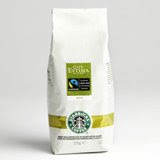
It has this label on it:

the Gwangju Fair Trade Movement is glad to announce
the discovery of two local brands of fair trade coffee in Gwangju
(and other cities around Korea),
another brand of coffee available online in Korea,
and then of course, there is always Starbucks' 'Estima'.
1.) The Beautiful Store's Beautiful Coffee has three varieties available:
'Nepal Coffee - A Gift from the Himalayas'
'Peru Coffee - A Gift from the Andes'
'Mountain Blend - Fair trade organic coffee'



* Available in whole beans, in pre-ground form, or in convenient single-serve coffee bags
* Available from:
- all Beautiful Store shops (eg. to the immediate left of Gwangju Train Station)
- all HomePlus supermarkets, in the 'whole bean' section of the coffee aisle
2.) YMCA's own 'Peace Coffee' imported from East Timor
* Available in whole bean form,
or conveniently packaged into single serve coffee bags
in three boxes of 15 each
(ie. 45 cup servings in one attractive boxed set).

* Available from the YMCA, upstairs on the third floor,
up the stairs to the left of the Tourist Information Office,
just opposite GIC, on Kumnamno.
3.) The long-established French fair trade coffee company Cafes Lobodis,
which is available through the new Korean online store 'Fair Trade Store,'
or at their shop in Apgujung in Seoul.

Lobodis is the Starbucks of fair trade coffees
in terms of its high profile which it enjoys in Europe
after celebrating its fifteenth year in business
but it is recognised for both quality of taste
and also ethical trading.
4.) Starbucks has one variety of fair trade coffee
which carries the official 'Fairtrade' logo, and is called Cafe Estima.
This is available in all Starbucks cafes in Gwangju and Korea
although only in packaged whole-bean form.
Company information on it is here and here.

It has this label on it:

Friday, May 9, 2008
Fair Trade Coffee Survey
At GIC on Saturday 10th May, World Fair Trade Day 2008
there will be a fair trade coffee taste test sampling session.
There will also be organic fair trade green tea and black tea to try (in tea-bag form),
and there will be at least six different types of fair trade coffee to sample, including two from Korea.
All drinks cost whatever silver coin donation you would like to make. Suggested donation prices are w500 for instant coffees, and a bit more for whole bean varieties.
You are welcome to bring your own favourite cup from home,
or buy a paper cup at GIC
(w10 or coin donation, to discourage use of paper cups)
and try any of the number of coffees available.
Your vote will be sought on which fair trade coffee is best for GIC to offer regularly in the future.
The featured coffee below is the second from a Korean company.
The fourth featured coffee is in two different forms:
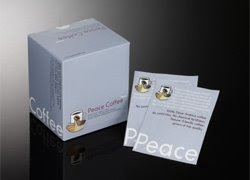
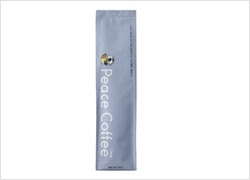
Brand: YMCA Korea, Peace Coffee Timor
Name: Peace Coffee - Coffee Bags; Peace Coffee - Whole Beans
This coffee comes in a unique and distinctive shade of egg-shell blue packaging, both appealing to the Korean sense of colour and reminiscent of the UN flag and peace-keeping force beret.
Despite bearing no official international labels certifying its organic or fair trade status, it does come to Korea via the national YMCA network. Though the colour of the packaging may be the first thing you notice, you will probably remember this single origin coffee for its pure full flavour. It has been taste tested by the GIC volunteer staff who happily endorsed the rich taste with a hint of cheeky bitter after-taste.
Sunday, May 4, 2008
World Fair Trade Day 2008
World Fair Trade Day 2008
is Saturday 10th May.
GIC are celebrating by holding an afternoon of special events.
2.00 pm Fair trade coffee and chocolate taste test sampling session #1.
All fair trade coffees less than w1,000 suggested donation prices.
2.30 - 3.30 - GIC Saturday afternoon talk:
1.) What in the world is fair trade? (* including criticisms)
2.) Where is fair trade in Gwangju and Korea?
3.) On becoming a fair trade organisation.
4.) Q & A: audience participation.
3.30 - Fair trade coffee taste test sampling session #2.
3.45 - The World Fair Trade Day raffle draw.
3.50ish - Black Gold DVD screening.
is Saturday 10th May.
GIC are celebrating by holding an afternoon of special events.
2.00 pm Fair trade coffee and chocolate taste test sampling session #1.
All fair trade coffees less than w1,000 suggested donation prices.
2.30 - 3.30 - GIC Saturday afternoon talk:
1.) What in the world is fair trade? (* including criticisms)
2.) Where is fair trade in Gwangju and Korea?
3.) On becoming a fair trade organisation.
4.) Q & A: audience participation.
3.30 - Fair trade coffee taste test sampling session #2.
3.45 - The World Fair Trade Day raffle draw.
3.50ish - Black Gold DVD screening.
Fair Trade Coffee Survey
At GIC on Saturday 10th May, World Fair Trade Day 2008
there will be a fair-trade coffee taste-test sampling-session.
You are welcome to bring your own favourite cup from home,
or buy a paper cup at GIC
(w10 or coin donation, to discourage use of paper cups)
and try any of the number of coffees available.
Your vote will be sought on which fair trade coffee is best for GIC to offer regularly in the future.
The fourth featured coffee is:
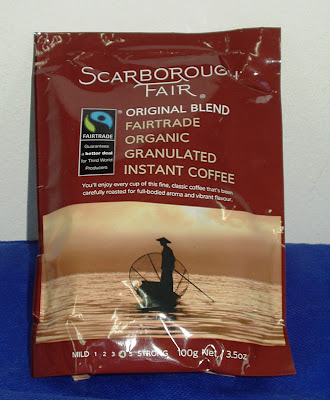
Brand: Scarborough Fair
Name: Original Blend Fairtrade Organic Granulated Instant Coffee
This conveniently instant coffee carries the Fairtrade logo,

and displays the 'Certified Organic New Zealand Agriquality' stamp,
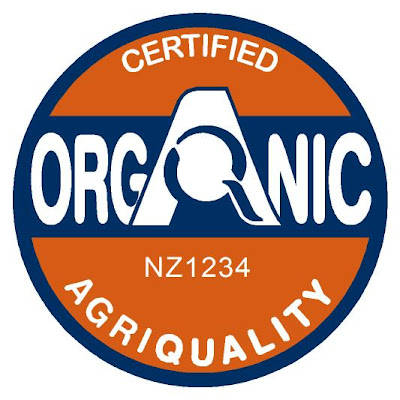
and has a mark stating it is 'IFOAM Accredited'
(The International Federation of Organic Agriculture Movements).

One cup, suggested price: w500.
there will be a fair-trade coffee taste-test sampling-session.
You are welcome to bring your own favourite cup from home,
or buy a paper cup at GIC
(w10 or coin donation, to discourage use of paper cups)
and try any of the number of coffees available.
Your vote will be sought on which fair trade coffee is best for GIC to offer regularly in the future.
The fourth featured coffee is:

Brand: Scarborough Fair
Name: Original Blend Fairtrade Organic Granulated Instant Coffee
This conveniently instant coffee carries the Fairtrade logo,

and displays the 'Certified Organic New Zealand Agriquality' stamp,

and has a mark stating it is 'IFOAM Accredited'
(The International Federation of Organic Agriculture Movements).

One cup, suggested price: w500.
Saturday, April 26, 2008
Raffle now has second prize
The World Fair Trade Day 2008 fair trade raffle now has a second prize.
At the draw on Saturday 10th May at 3.45 pm at GIC,
a second ticket will be drawn out of the hat.
The second place prize pack will include fair trade chocolate, fair trade coffee and a fair trade soccer ball.
The second prize will be awarded to a ticket holder in the room at the time of the draw.
(If the first person drawn for the second prize is not present, another ticket will be drawn until such time as a winner for the second prize is found.)
At the draw on Saturday 10th May at 3.45 pm at GIC,
a second ticket will be drawn out of the hat.
The second place prize pack will include fair trade chocolate, fair trade coffee and a fair trade soccer ball.
The second prize will be awarded to a ticket holder in the room at the time of the draw.
(If the first person drawn for the second prize is not present, another ticket will be drawn until such time as a winner for the second prize is found.)
Friday, April 25, 2008
Fair Trade Coffee Survey
At GIC on Saturday 10th May, World Fair Trade Day 2008
there will be a fair-trade coffee taste-test sampling-session.
You are welcome to bring your own favourite cup from home,
or buy a paper cup at GIC
(w10 or coin donation, to discourage use of paper cups)
and try any of the number of coffees available.
Your vote will be sought on which fair trade coffee is best for GIC to offer regularly in the future.
The third featured coffee is:

Brand: Beautiful Coffee
Name: Nepal Coffee: A gift from the Himalayas, Fair Trade Coffee
One cup, suggested price: w500.
there will be a fair-trade coffee taste-test sampling-session.
You are welcome to bring your own favourite cup from home,
or buy a paper cup at GIC
(w10 or coin donation, to discourage use of paper cups)
and try any of the number of coffees available.
Your vote will be sought on which fair trade coffee is best for GIC to offer regularly in the future.
The third featured coffee is:

Brand: Beautiful Coffee
Name: Nepal Coffee: A gift from the Himalayas, Fair Trade Coffee
One cup, suggested price: w500.
Wednesday, April 23, 2008
Fair Trade Coffee Survey
At GIC on Saturday 10th May, World Fair Trade Day 2008
there will be a fair-trade coffee taste-test sampling-session.
You are welcome to bring your own favourite cup from home,
or buy a paper cup at GIC
(w10 or coin donation, to discourage use of paper cups)
and try any of the number of coffees available.
Your vote will be sought on which fair trade coffee is best for GIC to offer regularly in the future.
The second featured coffee is:
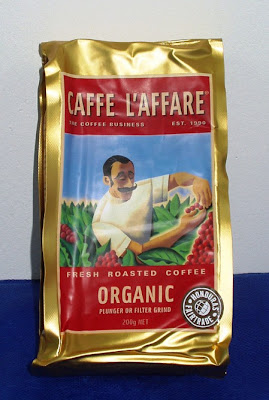
Brand: Cafe L'Affare (Italian: The Coffee Business)
Name: ORGANIC Honduras Fairtrade, Plunger or Filter Grind
An officially certified fair trade coffee,
this single-origin specialty label now carries
the Fairtrade logo.

One cup, suggested price: w700
there will be a fair-trade coffee taste-test sampling-session.
You are welcome to bring your own favourite cup from home,
or buy a paper cup at GIC
(w10 or coin donation, to discourage use of paper cups)
and try any of the number of coffees available.
Your vote will be sought on which fair trade coffee is best for GIC to offer regularly in the future.
The second featured coffee is:

Brand: Cafe L'Affare (Italian: The Coffee Business)
Name: ORGANIC Honduras Fairtrade, Plunger or Filter Grind
An officially certified fair trade coffee,
this single-origin specialty label now carries
the Fairtrade logo.

One cup, suggested price: w700
Tuesday, April 22, 2008
Fair Trade Coffee Survey
At GIC on Saturday 10th May, World Fair Trade Day 2008
there will be a fair-trade coffee taste-test sampling-session.
You are welcome to bring your own favourite cup from home,
or buy a paper cup at GIC
(w10 or coin donation, to discourage use of paper cups)
and try any of the number of coffees available.
Your vote will be sought on which fair trade coffee is best for GIC to offer regularly in the future.
The first featured coffee is:

Scarborough Fair,
Golden Blend
Fairtrade Organic Powdered Instant Coffee
This conveniently instant coffee carries the Fairtrade logo,

and displays the 'Certified Organic New Zealand Agriquality' stamp,

and has a mark stating it is 'IFOAM Accredited'
(The International Federation of Organic Agriculture Movements).

One cup, suggested price: w500.
there will be a fair-trade coffee taste-test sampling-session.
You are welcome to bring your own favourite cup from home,
or buy a paper cup at GIC
(w10 or coin donation, to discourage use of paper cups)
and try any of the number of coffees available.
Your vote will be sought on which fair trade coffee is best for GIC to offer regularly in the future.
The first featured coffee is:

Scarborough Fair,
Golden Blend
Fairtrade Organic Powdered Instant Coffee
This conveniently instant coffee carries the Fairtrade logo,

and displays the 'Certified Organic New Zealand Agriquality' stamp,

and has a mark stating it is 'IFOAM Accredited'
(The International Federation of Organic Agriculture Movements).

One cup, suggested price: w500.
Thursday, April 17, 2008
Fair Trade Raffle Prize Pack - tickets
The World Fair Trade Day 2008
fair trade raffle prize pack
is worth more than w100,000.
Tickets are now available at these times and places:
Monday - Thursday 21st - 25th April: at The Underground Grocers
Thursday evening - Quiznight: at Speakeasy
Saturday 26th: at GIC
Tickets cost w1,000.
Proceeds to establishing fair trade in Gwangju,
starting with fair trade tea and coffee being regularly available at GIC.
Raffle drawn on May 10th, 3.45 p.m., at GIC.
fair trade raffle prize pack
is worth more than w100,000.
Tickets are now available at these times and places:
Monday - Thursday 21st - 25th April: at The Underground Grocers
Thursday evening - Quiznight: at Speakeasy
Saturday 26th: at GIC
Tickets cost w1,000.
Proceeds to establishing fair trade in Gwangju,
starting with fair trade tea and coffee being regularly available at GIC.
Raffle drawn on May 10th, 3.45 p.m., at GIC.
Monday, April 7, 2008
The Gwangju fair trade raffle prize pack
Raffle tickets (경풍 추첨권) are available now
at the Gwangju International Center - GIC.
The winning ticket will be drawn
and the prize pack presented on May 10th,
World Fair Trade Day 2008,
at 3.45 pm, in GIC.
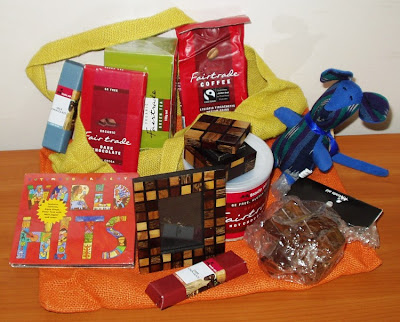
1.) A funky shopping bag.
Made in Bangladesh, this bag is made from jute (황마).
Useful for both grocery shopping and standing out in a crowd,
this brightly colourful handy bag was
made by CORR - The Jute Works.
2.) An ornamental picture frame and matching treasure box.
Both are made in India from varnished wood.
3.) An ornamental wooden puzzle.
Made in India from polished wood. (Not pictured as yet.)
4.) A cute cuddly toy.
This bright blue, friendly soft toy needs a name, a hug,
and a new home.
She/He/It was made in Guatemala from 100% cotton,
in the organisation named Upavim.
5.) Coffee, hot chocolate, green tea,
and three types of chocolate.
All are TradeAid brand,
and officially certified with the Fairtrade Labelling Organisation's certified fair trade logo.
Ethopian Yirgacheffe medium grind organic coffee (200 grams) ,
organic hot chocolate (336 grams),
organic green tea (50 tea bags),
organic dark chocolate (70% cacao, 100 grams)
Belgian dark chocolate (48% cacao, 50 grams)
Belgian milk chocolate (50 grams).
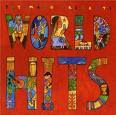
6.) One music CD, featuring:
Santana, Peter Tosh with Mick Jagger, The Gipsy Kings and others.
This CD entitled 'World Hits' is another colourful, fun compilation from the Putumayo World Music brand.
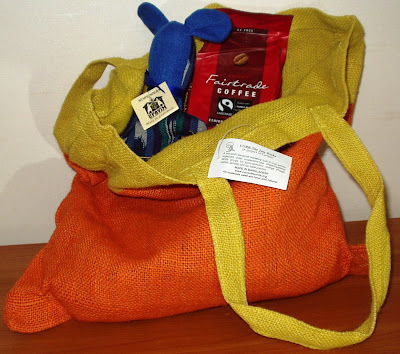
The prize pack will be stored and available for viewing at GIC from now until World Fair Day 2008 - May 10th - 3.45 p.m.
Will you be the one to take it home?
at the Gwangju International Center - GIC.
The winning ticket will be drawn
and the prize pack presented on May 10th,
World Fair Trade Day 2008,
at 3.45 pm, in GIC.

All goods in the prize pack were purchased from Trade Aid,
the long established, internationally recognised fair trade store of New Zealand.
The prize pack is:
the long established, internationally recognised fair trade store of New Zealand.
The prize pack is:
1.) A funky shopping bag.
Made in Bangladesh, this bag is made from jute (황마).
Useful for both grocery shopping and standing out in a crowd,
this brightly colourful handy bag was
made by CORR - The Jute Works.
2.) An ornamental picture frame and matching treasure box.
Both are made in India from varnished wood.
3.) An ornamental wooden puzzle.
Made in India from polished wood. (Not pictured as yet.)
4.) A cute cuddly toy.
This bright blue, friendly soft toy needs a name, a hug,
and a new home.
She/He/It was made in Guatemala from 100% cotton,
in the organisation named Upavim.
5.) Coffee, hot chocolate, green tea,
and three types of chocolate.
All are TradeAid brand,
and officially certified with the Fairtrade Labelling Organisation's certified fair trade logo.
Ethopian Yirgacheffe medium grind organic coffee (200 grams) ,
organic hot chocolate (336 grams),
organic green tea (50 tea bags),
organic dark chocolate (70% cacao, 100 grams)
Belgian dark chocolate (48% cacao, 50 grams)
Belgian milk chocolate (50 grams).

6.) One music CD, featuring:
Santana, Peter Tosh with Mick Jagger, The Gipsy Kings and others.
This CD entitled 'World Hits' is another colourful, fun compilation from the Putumayo World Music brand.

The prize pack will be stored and available for viewing at GIC from now until World Fair Day 2008 - May 10th - 3.45 p.m.
Will you be the one to take it home?
Monday, March 24, 2008
‘World Fair Trade Day’ - coming to Gwangju
The man with glasses and a nice jacket stood outside under the clear blue sky. He spoke with the other men. They stood in a semi-circle around him, watching, paying close attention. He asked how much a cup of coffee costs. They all knew the answer to that question. Then he asked them how much a cup of coffee costs in western countries. They did not know that one. It was his job to travel around the world, and his work to know that answer.
The man told the farmers a cup of their coffee overseas costs not twice the price, not even ten times the price, but actually more than 24 times the price of that same coffee in their home towns. The farmers simply looked at him in astonishment. They were stunned into a sudden, sullen silence. They tried to understand where all that money went. Then, he told them that for each kilo of coffee which they worked so hard to grow, they were paid barely 100th of the price earned by a multinational company selling coffee to a customer overseas.
This is only one scene from the quietly powerful movie named ‘Black Gold.’ The movie follows the man with glasses, the sales representative for the Ethiopian coffee farmers, as he travels around the world trying to find a fair price for his farmers’ coffee beans. Other scenes in the movie also point to one larger truth: ‘fair trade’ works well enough in a world where ‘free trade’ often seems badly broken.
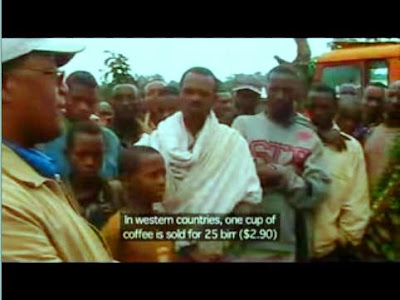
1.) Tadesse Meskela and the coffee farmers from Ethiopia.
The word ‘free’ seems appropriate only in that four multi-national coffee companies are free to pay a bare minimum price to poverty-stricken farmers, while still making a record profit. Those four companies are Kraft, Nestle, Proctor & Gamble and Sara Lee. Whatever the name of the brand on your cup or packet of coffee, one of these companies probably owned those coffee beans at some stage before they got to you. They probably will have taken a big slice of the profit, unless your coffee is clearly labelled ‘fair trade.’
Coffee farmers used to earn better prices on the world market commodity exchange. That was until 1989, when the United States of America pulled out of the International Coffee Agreement which regulated the supply of coffee in the world. Vietnam, which had never been a coffee producing nation before, suddenly gained investment and finance to develop itself into a cheap, low grade coffee producing nation. This greatly increased the international supply of coffee which in turn led to a huge drop in price – for coffee growers – and since then, the price paid to farmers has fallen to a 30-year low. Meanwhile, the four coffee multinationals share record profits totalling more than US$80 billion per year.
Why is more profit not passed back to the workers within the ‘free trade’ market system? The man with glasses described the typical travel plan of his farmers’ coffee:
"Once the coffee is bought here [from the farms], the coffee buyers or the coffee exporters are going to unload the coffee at the warehouse and process it and sell to their buyers abroad. And after that, the buyer is going to distribute this coffee to roasters. And the roasters are going to buy this coffee again, and then they roast the coffee and sell to retailers and cafes. Coffee reaches the consumer after six [links in the] chain."
The man with the glasses is Tadesse Meskela. He manages the Oromia Coffee Farmers Co-operative Union, representing over 74,000 coffee farmers in Ethopia. Tadesse described the way ‘fair trade’ coffee travels a different route to get to coffee drinkers:
"We are cutting the chain, like the coffee suppliers, collectors, and also middlemen in between and we are eliminating these and directly linking the farmer through their own co-operative … directly to the roaster. About 60% of the chain is removed by working through co-operatives."
Some larger and established companies which are not labelled as being fair trade deal directly with co-operatives like Tedesse’s, such as the high quality Italian coffee brand ‘Illy’. Other, smaller companies exist with the specific goal of returning more profit directly to farmers. These are ‘fair trade’ companies. They often charge a higher price to coffee drinkers. This is called a ‘premium.’ Due to the ‘economies of scale’ small fair trade companies cannot afford to compete in price with larger companies. Larger companies buy and sell much larger amounts of coffee, and so can afford to charge a lower price.
Competition is played out instead in terms of quality, and the assurance that a ‘fair’ amount of the price is indeed returned to the original producers of the coffee in developing economy countries. This assurance is supported by various organisations which have recently established easily identified logos or symbols. At least one of these logos you are able to find on a packet of coffee you can buy in Gwangju. Other varieties of ‘fair trade’ coffee can also be bought in other places in Gwangju.




"For a product to display the FAIRTRADE Mark it must meet international Fairtrade standards which are set by the international certification body."
Read more here.
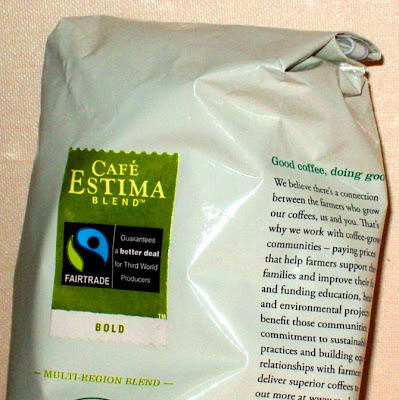
2.) This officially labelled fair trade coffee is available in Gwangju.
Find out where you can buy this and other brands on Saturday 10th, 2008, at GIC - The Gwangju International Center.
Some people are still cynical about the the ‘fair trade’ label. In a world where ‘seeing is believing’, few people get the chance to even care about where something as common as coffee is grown, and by whom, and in what living conditions those farmers live. Not many people get to actually travel to the place to see for themselves what impact trade is having on lives there. A student from New Zealand was among a group who did just that. Late last year Michelle, from Wellington, travelled to Ethopia and actually met Tadesse Meskala and some of the farmers from his co-operative.
On Saturday, 10th May, at GIC, from 2.30pm there will be a presentation of a brief report by Michelle on her trip to Ethopia. This will be part of the GIC Saturday afternoon talk series with a special focus on fair trade. Saturday 10th May is actually World Fair Trade Day for 2008. The day is being celebrated around the world as more and more people in western countries support the fair trade movement.
At the GIC Saturday afternoon talk that day there will also be a report on a survey of larger chain cafes and fair trade coffee in Gwangju and South Korea, a talk about the history of the development of fair trade, a screening of the movie Black Gold at 3.45 p.m., samples of fair trade coffee, tea and chocolate to try, and at around 4pm the draw of the raffle for the fantastic fair trade prize pack worth w150,000.
You can buy raffle tickets at GIC for only w1,000, and learn more about fair trade, and the fair trade raffle prize pack on this website,
and find more information on World Fair Trade Day at:
www.wftday.org
Find out more about Black Gold, the movie, at:

3.) The fair trade raffle prize pack
to be drawn at GIC on World Fair Trade Day, May 10th.
Tickets available at GIC from now until then.
[Ends]
Edited version appeared in Gwangju News - Volume 8, Issue 4 - April, 2008
The man told the farmers a cup of their coffee overseas costs not twice the price, not even ten times the price, but actually more than 24 times the price of that same coffee in their home towns. The farmers simply looked at him in astonishment. They were stunned into a sudden, sullen silence. They tried to understand where all that money went. Then, he told them that for each kilo of coffee which they worked so hard to grow, they were paid barely 100th of the price earned by a multinational company selling coffee to a customer overseas.
This is only one scene from the quietly powerful movie named ‘Black Gold.’ The movie follows the man with glasses, the sales representative for the Ethiopian coffee farmers, as he travels around the world trying to find a fair price for his farmers’ coffee beans. Other scenes in the movie also point to one larger truth: ‘fair trade’ works well enough in a world where ‘free trade’ often seems badly broken.

1.) Tadesse Meskela and the coffee farmers from Ethiopia.
The word ‘free’ seems appropriate only in that four multi-national coffee companies are free to pay a bare minimum price to poverty-stricken farmers, while still making a record profit. Those four companies are Kraft, Nestle, Proctor & Gamble and Sara Lee. Whatever the name of the brand on your cup or packet of coffee, one of these companies probably owned those coffee beans at some stage before they got to you. They probably will have taken a big slice of the profit, unless your coffee is clearly labelled ‘fair trade.’
Coffee farmers used to earn better prices on the world market commodity exchange. That was until 1989, when the United States of America pulled out of the International Coffee Agreement which regulated the supply of coffee in the world. Vietnam, which had never been a coffee producing nation before, suddenly gained investment and finance to develop itself into a cheap, low grade coffee producing nation. This greatly increased the international supply of coffee which in turn led to a huge drop in price – for coffee growers – and since then, the price paid to farmers has fallen to a 30-year low. Meanwhile, the four coffee multinationals share record profits totalling more than US$80 billion per year.
Why is more profit not passed back to the workers within the ‘free trade’ market system? The man with glasses described the typical travel plan of his farmers’ coffee:
"Once the coffee is bought here [from the farms], the coffee buyers or the coffee exporters are going to unload the coffee at the warehouse and process it and sell to their buyers abroad. And after that, the buyer is going to distribute this coffee to roasters. And the roasters are going to buy this coffee again, and then they roast the coffee and sell to retailers and cafes. Coffee reaches the consumer after six [links in the] chain."
The man with the glasses is Tadesse Meskela. He manages the Oromia Coffee Farmers Co-operative Union, representing over 74,000 coffee farmers in Ethopia. Tadesse described the way ‘fair trade’ coffee travels a different route to get to coffee drinkers:
"We are cutting the chain, like the coffee suppliers, collectors, and also middlemen in between and we are eliminating these and directly linking the farmer through their own co-operative … directly to the roaster. About 60% of the chain is removed by working through co-operatives."
Some larger and established companies which are not labelled as being fair trade deal directly with co-operatives like Tedesse’s, such as the high quality Italian coffee brand ‘Illy’. Other, smaller companies exist with the specific goal of returning more profit directly to farmers. These are ‘fair trade’ companies. They often charge a higher price to coffee drinkers. This is called a ‘premium.’ Due to the ‘economies of scale’ small fair trade companies cannot afford to compete in price with larger companies. Larger companies buy and sell much larger amounts of coffee, and so can afford to charge a lower price.
Competition is played out instead in terms of quality, and the assurance that a ‘fair’ amount of the price is indeed returned to the original producers of the coffee in developing economy countries. This assurance is supported by various organisations which have recently established easily identified logos or symbols. At least one of these logos you are able to find on a packet of coffee you can buy in Gwangju. Other varieties of ‘fair trade’ coffee can also be bought in other places in Gwangju.




"For a product to display the FAIRTRADE Mark it must meet international Fairtrade standards which are set by the international certification body."
Read more here.

2.) This officially labelled fair trade coffee is available in Gwangju.
Find out where you can buy this and other brands on Saturday 10th, 2008, at GIC - The Gwangju International Center.
Some people are still cynical about the the ‘fair trade’ label. In a world where ‘seeing is believing’, few people get the chance to even care about where something as common as coffee is grown, and by whom, and in what living conditions those farmers live. Not many people get to actually travel to the place to see for themselves what impact trade is having on lives there. A student from New Zealand was among a group who did just that. Late last year Michelle, from Wellington, travelled to Ethopia and actually met Tadesse Meskala and some of the farmers from his co-operative.
On Saturday, 10th May, at GIC, from 2.30pm there will be a presentation of a brief report by Michelle on her trip to Ethopia. This will be part of the GIC Saturday afternoon talk series with a special focus on fair trade. Saturday 10th May is actually World Fair Trade Day for 2008. The day is being celebrated around the world as more and more people in western countries support the fair trade movement.
At the GIC Saturday afternoon talk that day there will also be a report on a survey of larger chain cafes and fair trade coffee in Gwangju and South Korea, a talk about the history of the development of fair trade, a screening of the movie Black Gold at 3.45 p.m., samples of fair trade coffee, tea and chocolate to try, and at around 4pm the draw of the raffle for the fantastic fair trade prize pack worth w150,000.
You can buy raffle tickets at GIC for only w1,000, and learn more about fair trade, and the fair trade raffle prize pack on this website,
and find more information on World Fair Trade Day at:
www.wftday.org
Find out more about Black Gold, the movie, at:

3.) The fair trade raffle prize pack
to be drawn at GIC on World Fair Trade Day, May 10th.
Tickets available at GIC from now until then.
[Ends]
Edited version appeared in Gwangju News - Volume 8, Issue 4 - April, 2008
Trendy Korean shopping – fair enough?
We walked around down town, passing by Kumnamno on the way home after another meal. It was early on in a warm autumnal evening in late 2001. We were in a jubilant mood from the great Gwangju food, the approach of the Christmas festive season, and with it a break at the end of our years’ contracts. We were happy with life in Gwangju… except for one thing. Brian was a coffee drinker and a traveller, and had sampled the best of international espresso culture in Italy and elsewhere. As we wandered happily along that night he mentioned how interesting it was that Koreans seemed content to drink so much hazelnut coffee.
You can imagine his excitement when espresso coffee shops suddenly started appearing around town. Within a week of our conversation that night we noticed the first new café near our school. The very sight of a real coffee machine and the strong aroma of freshly ground coffee beans excited Brian, and he quickly befriended the owner/operator on his daily visits. Life suddenly seemed complete. Gwangju was re-established as the centre of the universe and all that was cool.
Suddenly, before and after the 2002 World Cup, faster than you can say: “DDR!” lots of new trends appeared. A whole squad of local and international chain coffee shops opened down town and throughout the country. The Korean doughnuts craze began, bagels mysteriously appeared in quality bread stores, and shiny movie multiplexes sprouted and started showing good local films. Fortunately, the whole peroxide-hair colour thing was more of a quick fad and less of a lasting trend. More recently high quality, high percentage chocolate has been confirmed as the latest health-food elixir.
The success of these trends proves Korea is a capable capitalist country of diligent shopaholics and savvy style-spotters. It was with great surprise then that I recently found a major shopping trend that has been developing in many nations overseas but remains new to Korea: ‘fair trade’. When home at the end of last year I found high quality, high percentage fair trade chocolate in the supermarkets; fair trade coffee brands in common coffee shops, and a new café chain store specialising in fair trade coffee. Even the local shop from the national fair trade chain store has moved from a cheap-rent street to an upmarket corner down town.
There are many reasons why Korea could and should take up the fair trade trend. Korea is a newly developed nation, so now has a large middle class who can afford to pay the ‘premium,’ or relatively high prices of fair trade products. Officially certified fair trade products are consistently of the highest quality. Fair trade agricultural produce is usually organic which goes well with Korea’s popular well-being trend. Some say buying fair trade is a way to subvert or resist the power of multinational corporations and their corrupt western governments who try to force FTAs on countries like Korea. Finally, Korea is well placed to support fair trade producers in nearby countries in the Asia-Pacific region, for example by importing fair trade bananas or sugar from the Philippines, fair trade tea from Nepal, or fair trade coffee or honey from Vietnam.
So as you savour some chocolate, or sip your favourite drink from a trendy new Gwangju café this month, ask yourself how much the farmers who grew the beans were paid for all their labour; or even better, ask the shop manager or staff. Do they know anything about the new fair trade trend? If not, give them a copy of Gwangju News next month when there will be a special feature article on the topic. You could also invite them to the special Saturday afternoon talk session on May 10th, which is World Fair Trade Day for 2008. Cynics, supporters, trend-spotters, and anyone curious for a sample of fair trade tea, coffee or chocolate are welcome.
[Ends]
Edited version published in Gwangju News - Volume 8, Issue 3 - March, 2008.
You can imagine his excitement when espresso coffee shops suddenly started appearing around town. Within a week of our conversation that night we noticed the first new café near our school. The very sight of a real coffee machine and the strong aroma of freshly ground coffee beans excited Brian, and he quickly befriended the owner/operator on his daily visits. Life suddenly seemed complete. Gwangju was re-established as the centre of the universe and all that was cool.
Suddenly, before and after the 2002 World Cup, faster than you can say: “DDR!” lots of new trends appeared. A whole squad of local and international chain coffee shops opened down town and throughout the country. The Korean doughnuts craze began, bagels mysteriously appeared in quality bread stores, and shiny movie multiplexes sprouted and started showing good local films. Fortunately, the whole peroxide-hair colour thing was more of a quick fad and less of a lasting trend. More recently high quality, high percentage chocolate has been confirmed as the latest health-food elixir.
The success of these trends proves Korea is a capable capitalist country of diligent shopaholics and savvy style-spotters. It was with great surprise then that I recently found a major shopping trend that has been developing in many nations overseas but remains new to Korea: ‘fair trade’. When home at the end of last year I found high quality, high percentage fair trade chocolate in the supermarkets; fair trade coffee brands in common coffee shops, and a new café chain store specialising in fair trade coffee. Even the local shop from the national fair trade chain store has moved from a cheap-rent street to an upmarket corner down town.
There are many reasons why Korea could and should take up the fair trade trend. Korea is a newly developed nation, so now has a large middle class who can afford to pay the ‘premium,’ or relatively high prices of fair trade products. Officially certified fair trade products are consistently of the highest quality. Fair trade agricultural produce is usually organic which goes well with Korea’s popular well-being trend. Some say buying fair trade is a way to subvert or resist the power of multinational corporations and their corrupt western governments who try to force FTAs on countries like Korea. Finally, Korea is well placed to support fair trade producers in nearby countries in the Asia-Pacific region, for example by importing fair trade bananas or sugar from the Philippines, fair trade tea from Nepal, or fair trade coffee or honey from Vietnam.
So as you savour some chocolate, or sip your favourite drink from a trendy new Gwangju café this month, ask yourself how much the farmers who grew the beans were paid for all their labour; or even better, ask the shop manager or staff. Do they know anything about the new fair trade trend? If not, give them a copy of Gwangju News next month when there will be a special feature article on the topic. You could also invite them to the special Saturday afternoon talk session on May 10th, which is World Fair Trade Day for 2008. Cynics, supporters, trend-spotters, and anyone curious for a sample of fair trade tea, coffee or chocolate are welcome.
[Ends]
Edited version published in Gwangju News - Volume 8, Issue 3 - March, 2008.
Welcome to Fair Trade Gwangju
This is the home of the organisation of a group of Koreans and foreigners looking at the issues and benefits of fair trade, including the availability of fair trade products in Gwangju City, Jeollanamdo.
In terms of products, the main focus is initially coffee. Fair trade chocolate is available in slightly more limited supply... as far as we know as of 24th March, 2008. Any information on where to purchase any fair trade products in this city, province or country (including Korean language websites) is gladly welcomed and will be included on the site.
There are four specific areas of information we expect to provide.
1.) Articles generally outlining and introducing fair trade to a broader audience, including location of access points to fair trade products locally and nationally.
2.) Web links to sites, including fair trade organisations around the world, studies and information.
3.) Our own study on fair trade in Gwangju, focusing on attitudes toward the supply of fair trade coffee by major coffee chain stores in Gwangju.
4.) Upcoming events planned for World Fair Trade Day 2008, on Saturday 10th May, at The Gwangju International Center.
Visit here for regular updates on these areas, and more.
In terms of products, the main focus is initially coffee. Fair trade chocolate is available in slightly more limited supply... as far as we know as of 24th March, 2008. Any information on where to purchase any fair trade products in this city, province or country (including Korean language websites) is gladly welcomed and will be included on the site.
There are four specific areas of information we expect to provide.
1.) Articles generally outlining and introducing fair trade to a broader audience, including location of access points to fair trade products locally and nationally.
2.) Web links to sites, including fair trade organisations around the world, studies and information.
3.) Our own study on fair trade in Gwangju, focusing on attitudes toward the supply of fair trade coffee by major coffee chain stores in Gwangju.
4.) Upcoming events planned for World Fair Trade Day 2008, on Saturday 10th May, at The Gwangju International Center.
Visit here for regular updates on these areas, and more.
Subscribe to:
Posts (Atom)
